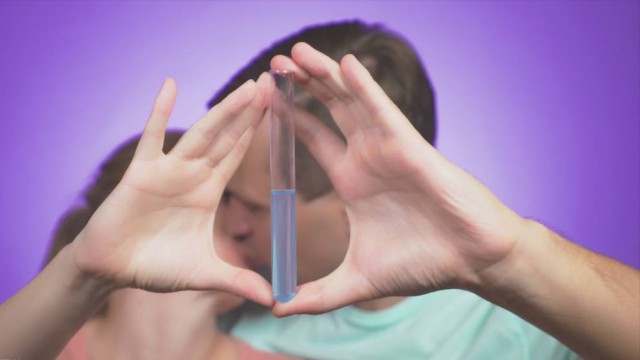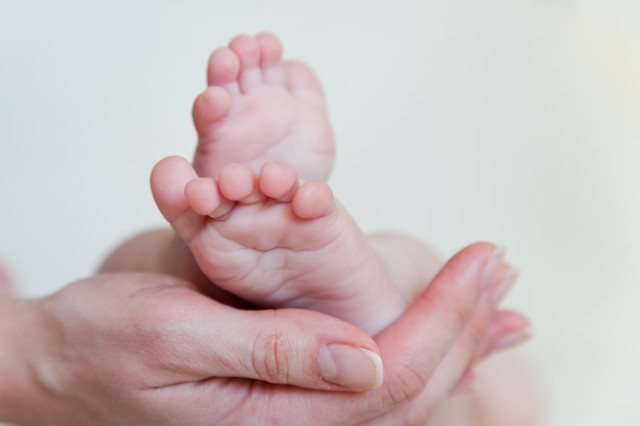美国三代试管婴儿技术适用范围有啥?全面了解赴美试管适用人群 What is the applicable scope of the third-generation IVF technology in
-
随着医疗技术的不断发展,试管婴儿技术为众多不孕不育家庭带来了希望。而美国三代试管婴儿技术凭借其先进的基因筛查和诊断技术,更是在全球范围内备受关注。那么,这项技术究竟适用于哪些人群呢?下面我们就来全面了解一下赴美试管的适用人群。
美国在试管婴儿领域一直处于较高地位,其三代试管婴儿技术不仅能够提高试管婴儿的成功率,还能有效避免一些遗传性疾病的传递。了解该技术的适用范围,对于有需求的家庭来说至关重要。接下来,让我们详细探讨适合赴美进行试管婴儿的人群。
染色体异常人群
染色体结构异常:染色体结构异常包括易位、倒位等情况。例如,染色体平衡易位携带者,其自身染色体总数正常,但染色体结构发生了重排。在自然受孕过程中,胚胎很容易出现染色体异常,导致反复流产或胎儿畸形。美国三代试管婴儿技术可以通过PGS/PGD技术对胚胎的染色体进行全面筛查和诊断,挑选出染色体正常的胚胎进行移植,大大提高了受孕成功率和胎儿的健康率。像美国加州生殖医学中心(CCRH),在处理染色体异常患者方面有着丰富的经验和先进的技术,帮助了众多此类患者成功孕育健康宝宝。
染色体数目异常:常见的染色体数目异常如唐氏综合征(21-三体综合征)、爱德华氏综合征(18-三体综合征)等。这类患者自然受孕时,胎儿患染色体疾病的风险极高。美国三代试管婴儿技术能够检测胚胎的染色体数目,排除异常胚胎,选择正常胚胎移植,为患者家庭避免了生育染色体病患儿的痛苦。
With the continuous advancement of medical technology, IVF has brought hope to many infertile families. Third-generation IVF technology in the United States, with its advanced genetic screening and diagnostic techniques, has garnered global attention. So, who is suitable for this technology? Let's take a comprehensive look at who is eligible for IVF in the United States.
The United States has long held a leading position in the field of IVF. Its third-generation IVF technology not only improves IVF success rates but also effectively prevents the transmission of some genetic diseases. Understanding the scope of this technology is crucial for prospective families. Next, let's explore in detail the types of individuals suitable for IVF in the United States.
Chromosomal Abnormalities
Chromosomal structural abnormalities include translocations and inversions. For example, carriers of balanced translocations have a normal total number of chromosomes but a rearrangement of their chromosome structure. During natural conception, embryos are prone to chromosomal abnormalities, leading to recurrent miscarriage or fetal malformations. Third-generation IVF in the United States allows for comprehensive embryo chromosomal screening and diagnosis using PGS/PGD, allowing embryos with normal chromosomes to be selected for transfer, significantly improving pregnancy success rates and fetal health. Centers like the California Center for Reproductive Medicine (CCRH) in the United States have extensive experience and advanced technology in treating patients with chromosomal abnormalities, helping numerous such patients successfully conceive healthy babies.
Common chromosomal abnormalities include Down syndrome (trisomy 21) and Edwards syndrome (trisomy 18). Natural conception in these patients places the fetus at high risk for chromosomal disorders. Third-generation IVF technology in the United States can detect the chromosome number of embryos, exclude abnormal embryos, and select normal embryos for transplantation, sparing families the pain of having a child with a chromosomal disorder.

遗传性疾病患者或携带者
单基因遗传病:单基因遗传病是由单个基因突变引起的疾病,如血友病、地中海贫血、囊性纤维化等。如果夫妻双方中有一方或双方是单基因遗传病的携带者,通过自然受孕,胎儿有一定概率会遗传该疾病。美国三代试管婴儿的PGD技术可以对胚胎的特定基因进行检测,诊断胚胎是否携带致病基因,从而选择不携带致病基因的胚胎进行移植,阻断遗传病的传递。例如,美国的HRC生殖医疗集团,在遗传性疾病的筛查和诊断方面处于行业前沿,为许多有遗传病史的家庭带来了健康生育的希望。
多基因遗传病:虽然多基因遗传病的遗传机制较为复杂,受多个基因和环境因素共同影响,但美国三代试管婴儿技术也能在一定程度上对其进行评估和筛选。通过对胚胎的基因分析,降低胎儿患多基因遗传病的风险,如某些先天性心脏病、糖尿病等。
高龄女性
卵子质量下降:随着年龄的增长,女性的卵子质量会逐渐下降,染色体异常的概率增加。高龄女性自然受孕时,胚胎染色体异常的风险明显升高,容易导致流产、胎停育等情况。美国三代试管婴儿技术可以对高龄女性的胚胎进行染色体筛查,挑选出染色体正常的优质胚胎进行移植,提高受孕成功率。一般来说,美国试管婴儿的费用在3-5万美元左右,具体费用会因患者的身体状况、治疗方案等因素而有所不同。
生育力降低:高龄女性的卵巢功能衰退,卵子数量减少,生育力明显降低。美国先进的促排卵方案和试管婴儿技术,可以更有效地获取卵子,提高受孕机会。例如,美国的FSAC生育中心,针对高龄女性制定个性化的治疗方案,帮助她们实现生育梦想。
不明原因不孕不育人群
多次试管婴儿失败:有些夫妻经过多次国内试管婴儿治疗仍未成功受孕,且原因不明。美国三代试管婴儿技术可以对胚胎进行更全面的检测和分析,找出可能导致失败的原因,如胚胎染色体异常等,并采取相应的措施,提高后续治疗的成功率。
长期备孕未孕:对于一些夫妻,经过长时间的自然备孕仍未怀孕,且各项检查未发现明显异常。美国三代试管婴儿技术可以为他们提供一种有效的解决方案,通过优化胚胎选择,增加受孕的机会。
以上内容仅供参考,如有疑问,可以点击在线免费咨询。
Patients or Carriers of Genetic Diseases
Monogenic genetic diseases are caused by mutations in a single gene, such as hemophilia, thalassemia, and cystic fibrosis. If one or both spouses are carriers of a single genetic disease, there is a certain probability that the fetus will inherit the disease through natural conception. PGD technology used in third-generation IVF in the United States can test embryos for specific genes to determine whether they carry the disease-causing gene. This allows embryos without the disease-causing gene to be selected for transfer, thus preventing the transmission of the disease. For example, HRC Reproductive Medical Group in the United States is at the forefront of screening and diagnosis for genetic diseases, bringing hope for healthy childbearing to many families with a history of genetic diseases.
Polygenic genetic diseases: Although the inheritance mechanisms of polygenic diseases are complex and influenced by multiple genes and environmental factors, third-generation IVF technology in the United States can also assess and screen for these diseases to a certain extent. Genetic analysis of embryos can reduce the risk of polygenic diseases in the fetus, such as certain congenital heart diseases and diabetes.
Advanced Women
Decreased Egg Quality: With aging, a woman's egg quality gradually declines, and the probability of chromosomal abnormalities increases. When older women conceive naturally, the risk of chromosomal abnormalities in the embryo increases significantly, leading to miscarriage, fetal growth retrieval, and other complications. Third-generation IVF technology in the United States allows for chromosomal screening of embryos in older women, selecting high-quality embryos with normal chromosomes for transfer, and improving the success rate of pregnancy. Generally, the cost of IVF in the United States ranges from $30,000 to $50,000, varying depending on factors such as the patient's physical condition and treatment plan.
Decreased Fertility: Advanced women experience declining ovarian function, a decrease in egg count, and a significant decrease in fertility. Advanced ovulation stimulation protocols and IVF technology in the United States can more effectively retrieve eggs and improve the chances of pregnancy. For example, FSAC Fertility Center in the United States offers personalized treatment plans for older women to help them achieve their dream of having a child.
Unexplained Infertility
Repeated IVF Failure: Some couples have failed to conceive after multiple IVF attempts in China, and the cause remains unexplained. Third-generation IVF technology in the US allows for more comprehensive embryo testing and analysis, identifying potential causes of failure, such as chromosomal abnormalities, and implementing appropriate measures to improve the success rate of subsequent treatment.
Long-term pregnancy attempts: For some couples who have not conceived after a long period of natural attempts, and whose tests have not revealed any significant abnormalities, third-generation IVF technology in the US offers an effective solution, optimizing embryo selection and increasing the chances of conception.
The above information is for reference only. If you have any questions, please click here for a free online consultation.
- 展开阅读全文
- 赞 收藏 阅读 2025-10-07
相关推荐
-
 赴美试管婴儿指南:从备孕到落地,全流程与费用深度解析 A Guide to IVF in the US: From Pregnancy Preparation to Birth, an In-Dept
赴美试管婴儿指南:从备孕到落地,全流程与费用深度解析 A Guide to IVF in the US: From Pregnancy Preparation to Birth, an In-Dept赴美试管婴儿指南:从备孕到落地,全流程与费用深度解析 随着医疗水平的提升和国际化服务的发展,越来越多的家庭选择赴美开展体外受精(IVF)辅助生育。A Guide to
-
 来洛杉矶待产,美宝家庭值得旅游打卡的10大好去处!10 great places for families with American babies to visit when planning a
来洛杉矶待产,美宝家庭值得旅游打卡的10大好去处!10 great places for families with American babies to visit when planning a定制一款完美孕产度假规划!洛杉矶待产能去哪里玩? 圣地亚哥,是美国加利福尼亚州第二大城市,也是一个知名的旅游胜地,车程一个半小时左右。Plan the perfect ma
-
 赴美生子选址科学:为什么80%孕妇选洛杉矶尔湾? Scientifically choosing a location for childbirth in the United States: Why
赴美生子选址科学:为什么80%孕妇选洛杉矶尔湾? Scientifically choosing a location for childbirth in the United States: Why根据2025年赴美生子行业白皮书数据显示,洛杉矶地区集中了全美75%的赴美生子家庭,其中尔湾市(Irvine)又以32%的占比成为洛杉矶地区的核心枢纽。According to the

 美国华人月嫂公司
美国华人月嫂公司  赴美生娃必看
赴美生娃必看 0 评论
0 评论  洛杉矶试管助孕公司
洛杉矶试管助孕公司